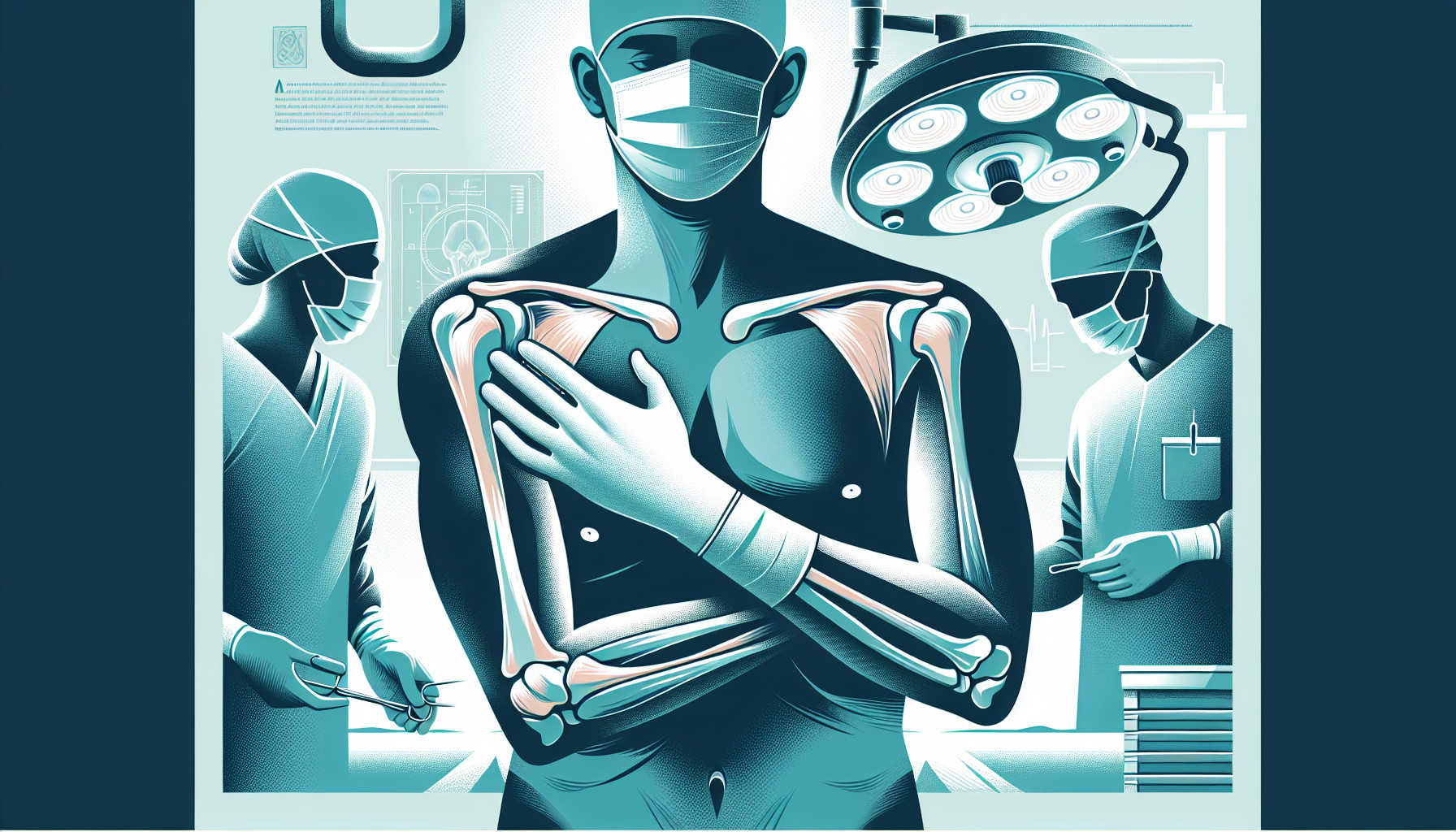Our Summary
This paper discusses the increased use of a specific type of shoulder surgery, known as reverse shoulder arthroplasty, in treating severe shoulder injuries, particularly in older people. This includes injuries like proximal humerus fractures and fixed glenohumeral dislocation. Early to mid-term results of this surgery are encouraging and appear to be better than other methods. It also seems to help patients recover more predictably and with less reliance on bone healing and rehabilitation. However, more long-term studies are needed and it’s important for surgeons to be aware of potential complications. To ensure the best results for patients with traumatic shoulder injuries, surgeons need to fully understand the different types of implants available, when to use them, and the correct techniques for this kind of surgery.
FAQs
- What is reverse shoulder arthroplasty and what shoulder conditions is it used to treat?
- How does reverse shoulder arthroplasty compare to unconstrained humeral head replacement in terms of results and recovery?
- What complications are specific to reverse shoulder arthroplasty and what is needed for optimal patient outcomes?
Doctor’s Tip
A doctor might advise a patient undergoing shoulder replacement surgery to follow their post-operative rehabilitation plan closely, including attending physical therapy sessions and doing prescribed exercises at home. This will help improve range of motion, strength, and function in the shoulder joint, leading to a faster and more successful recovery. It is important for patients to be patient with the healing process and to communicate any concerns or setbacks with their healthcare team. Additionally, avoiding heavy lifting and high-impact activities can help prevent complications and ensure the longevity of the shoulder replacement.
Suitable For
Patients who are typically recommended for shoulder replacement surgery include those with:
- Severe arthritis or degenerative joint disease in the shoulder joint that causes significant pain, stiffness, and limited range of motion.
- Failed previous shoulder surgery, such as shoulder arthroscopy or rotator cuff repair, that did not provide relief of symptoms.
- Severe fractures of the proximal humerus that cannot be adequately treated with conservative measures or traditional shoulder replacement.
- Chronic shoulder dislocation or instability that has not responded to nonsurgical treatments.
- Rotator cuff tears that are irreparable and causing significant pain and functional limitations.
- Severe shoulder pain and dysfunction that significantly impacts daily activities and quality of life.
- Patients who are medically fit for surgery and able to undergo the rehabilitation process following shoulder replacement.
It is important for patients to undergo a thorough evaluation by an orthopedic surgeon to determine if shoulder replacement surgery is the best treatment option for their specific condition.
Timeline
Before Shoulder Replacement:
- Patient experiences chronic shoulder pain, stiffness, and limited range of motion.
- Patient undergoes physical therapy, cortisone injections, and other conservative treatments to manage symptoms.
- Imaging tests such as X-rays, MRIs, and CT scans are performed to assess the extent of shoulder damage.
- Orthopedic surgeon recommends shoulder replacement surgery as a last resort option.
After Shoulder Replacement:
- Patient undergoes pre-operative tests and evaluations to ensure they are a good candidate for surgery.
- Shoulder replacement surgery is performed, either as a total shoulder replacement or reverse shoulder arthroplasty, depending on the specific condition.
- Patient stays in the hospital for a few days for post-operative care and pain management.
- Patient begins physical therapy and rehabilitation to regain strength, mobility, and function in the shoulder.
- Follow-up appointments with the surgeon are scheduled to monitor progress and address any complications.
- Patient gradually returns to normal activities and experiences reduced pain and improved shoulder function.
What to Ask Your Doctor
What are the potential risks and complications associated with shoulder replacement surgery?
What are the expected outcomes and recovery time following shoulder replacement surgery?
How long will the shoulder replacement last and will I need additional surgeries in the future?
What type of rehabilitation or physical therapy will be necessary after the surgery?
Will I be able to return to my normal activities and sports after shoulder replacement surgery?
Are there any restrictions or limitations I should be aware of after the surgery?
How experienced is the surgeon in performing shoulder replacement surgeries?
What are the different types of shoulder replacement implants available and which one is best for my specific condition?
Are there any alternative treatments or procedures that could be considered instead of shoulder replacement?
What is the success rate of shoulder replacement surgery for patients with similar conditions to mine?
Reference
Authors: Szerlip BW, Morris BJ, Edwards TB. Journal: Instr Course Lect. 2016;65:171-9. PMID: 27049189
